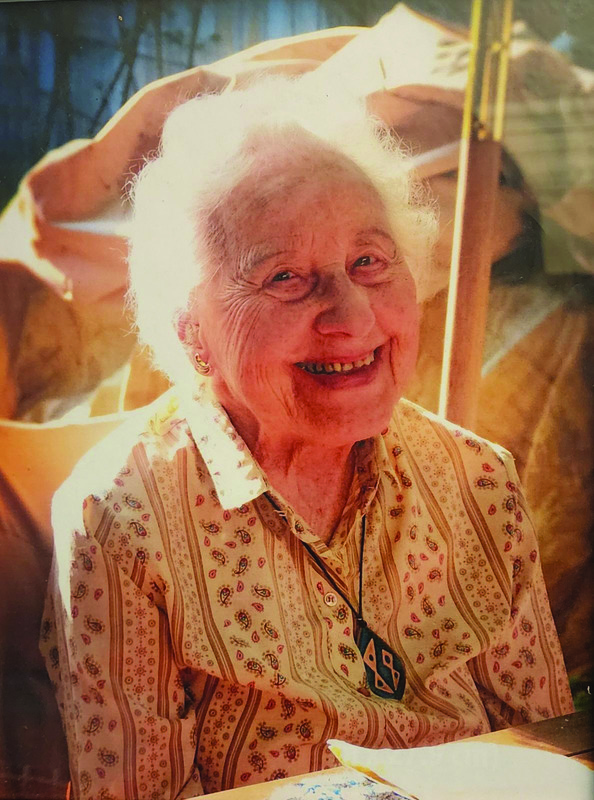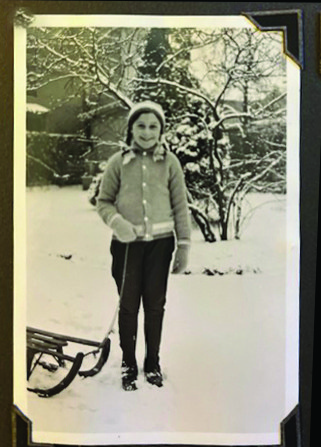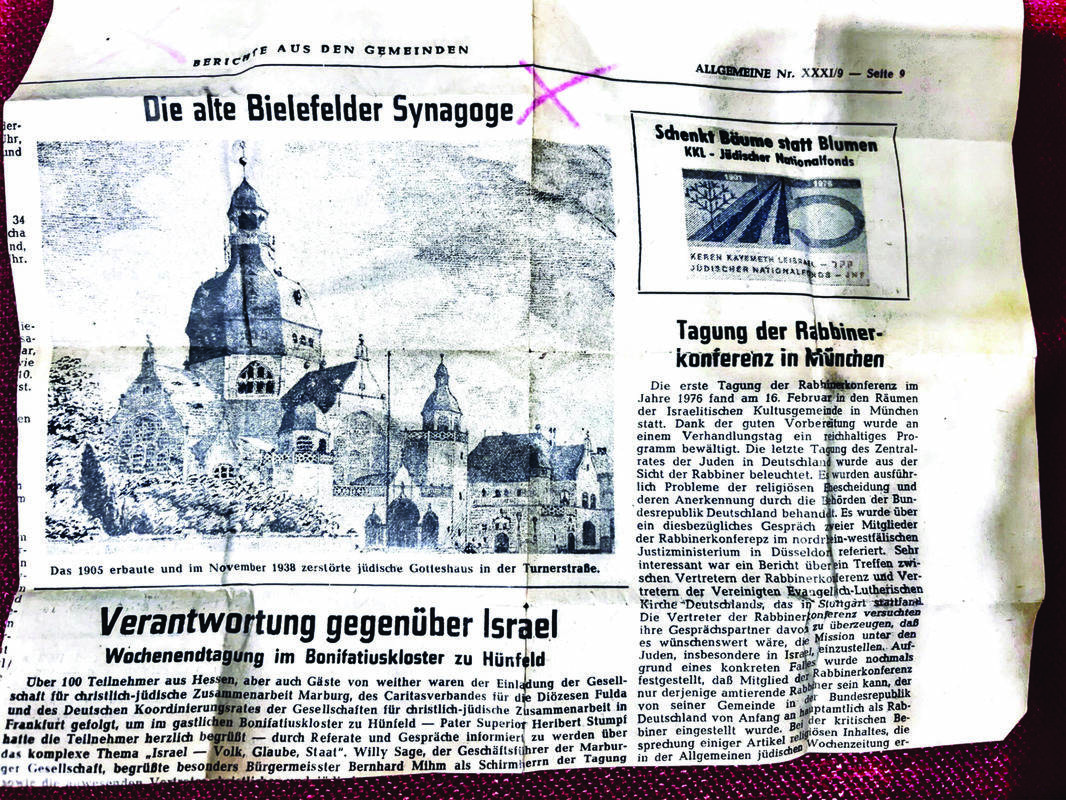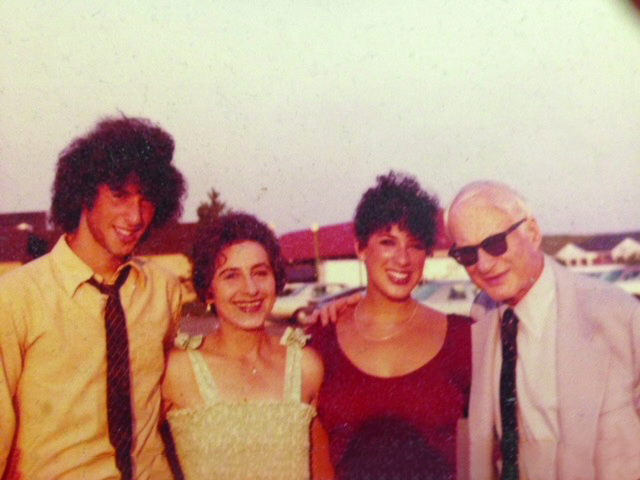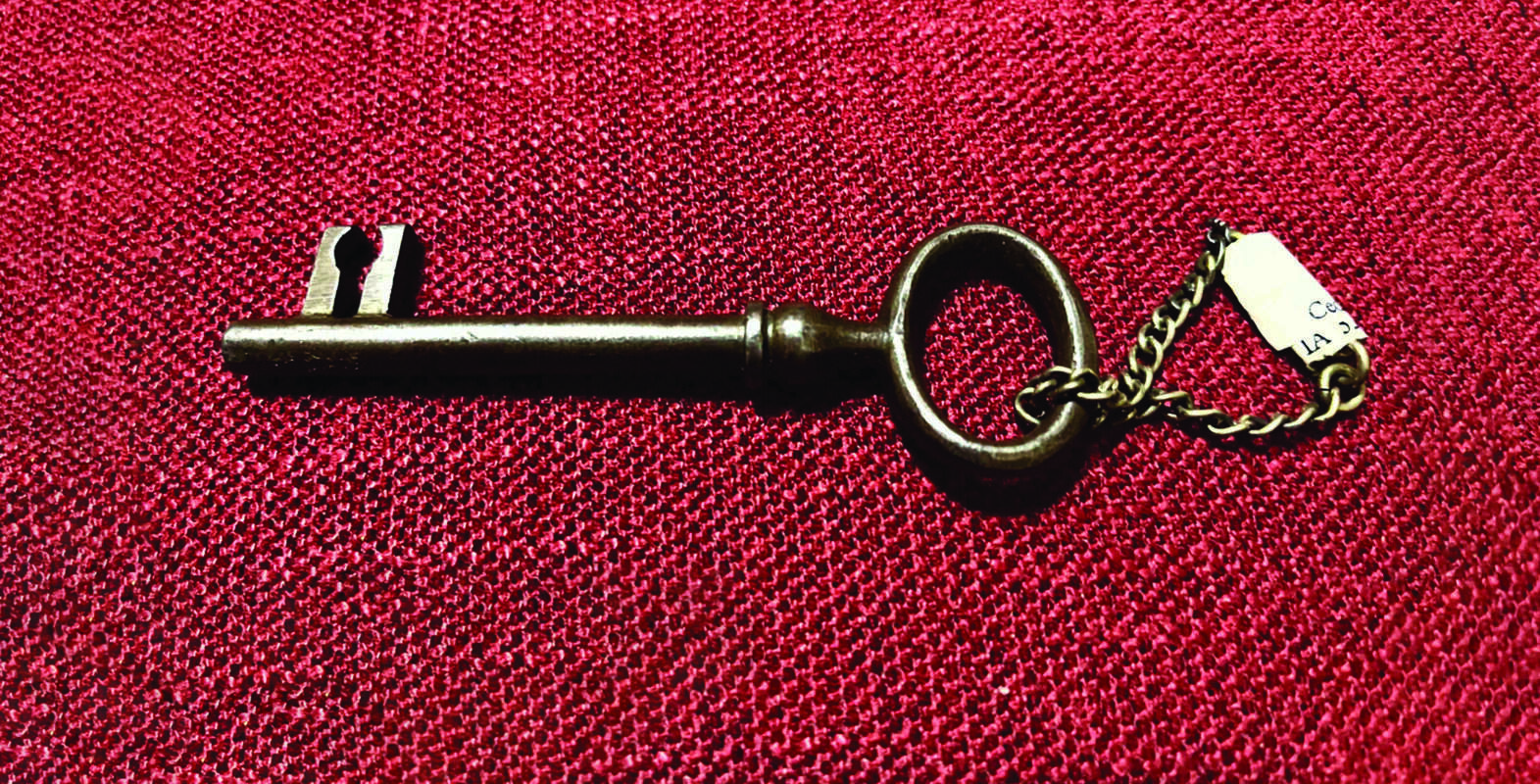For almost 10 days in November, my family and I will be immersed in German-Jewish culture in the city of my mother’s birth, Bielefeld, Germany, seeing old friends and cousins who will be making their way from Denmark.
This trip is the culmination of all the trips that I’ve made to Europe over the past 17 months – plus the seven years since my mother’s passing. During these trips and over this time, discussions have taken place with family members in the U.S. and London, U.S. museums, curators, and historians to make the decision as to where the Synagogue Key, the only remaining relic of my mother’s synagogue destroyed on Kristallnacht in 1938 (The Night of Broken Glass) should be displayed.
The History Museum in Bielefeld will interview my brother and me for a video which will include recorded excerpts of my mother speaking about her experiences. This has become a collaboration between the current Community Synagogue in Bielefeld and the History Museum, where the key will be registered in perpetuity.
On Friday, November 8, I will co-lead Shabbat services with Cantor Yuval Paul Adam of the Bielefeld Synagogue. We will conclude with the poem My Garden, written by my grandfather in April 1939, just before the family left Germany. A composer (and good friend) in Germany has put the poem to music. At 5:30 pm on Saturday, November 9, people will convene at the spot where the old Synagogue was before its destruction and then proceed to the City Hall for a formal presentation, at which time I will present the key.
– – – – – – – – – – –– – – – –
This is the English translation of what I will deliver in German, along with the key:
In the late afternoon of November 9, 1938, my then, 15-year-old mother, Marianne Katzenstein, was practicing the organ in her synagogue – music was her greatest passion. I like to imagine that she would have happily spent many more hours in that organ loft if she hadn’t been called home to dinner. Dutifully, she locked the door behind her, put the key in her pocket and made her way home.
On the morning of November 10, my mother was shaken out of her sleep with the cries of their maid, “Marianne, Marianne, the synagogue is burning, the synagogue is burning!”
Built and commissioned in 1905 by Marianne’s uncle, Moritz Katzenstein, who was also the president of the Bielefeld Jewish community, all that was left of the beautiful synagogue were flames and ash. Kristallnacht or “Night of Broken Glass” as it has been referred to in Germany for many years, now more properly called for what it truly was – a pogrom – changed the lives of German Jews and their descendants forever. Germany was no longer their homeland.
And what about that key? My mother and her sister were able to leave Germany via the Kindertransport to London, and that key, still in my mother’s pocket, set out on a journey that lasted nearly 90 years from England – briefly to Israel, and then America. As children, my brother and I were in awe of the big key in its special little velvet pouch. We grew to understand that it was connected to stories of a lost world in time; stories that were tainted with a mixture of sadness and longing. We knew the key was an important and precious piece of history that bridged the generations and forced us to connect with the past.
Years before she died, through a personal and professional connection, my mother had planned to donate the key to the Holocaust Museum in Washington D.C. But for many reasons (among them, the curator passed and then she did, too) it did not happen in her lifetime and we were left to figure out where it should eventually have its final resting place. It was, after all, the bridge to my mother’s past and her beloved birthplace where she spent the first 15 idyllic years of her life enjoying school, friends, family, and playing in their beautiful garden. It was finally clear to us that it needed to go home. Just as, at one time, it opened the door to the synagogue, may it now symbolically open new doors; it was an important bridge of memory to the past, may it be a bridge of freedom to all future generations. לדור ודור
On behalf of my entire family who have traveled from America, England, and Denmark, we are honored to bring the key back to its original home to serve as a key of peace amongst peoples of all faiths and backgrounds – to the new Community Synagogue of Bielefeld and the Bielefeld Museum of History.
– – – – – – – – – – – – – – – – – – – – – – – – – – – – – – – –
Cantor Jennifer Bern-Vogel has been the cantor for Congregation Emanu El in Redlands, Calif. since 2009. She served as cantor of Ohef Sholom Temple in Norfolk, 1996 – 2009.
– – – – – – – – – – – – – – – – – – – – – – – – – – – – – – – –
Marianne A. Bern shared the story of the key and the synagogue’s fire at Ohef Sholom Temple on Kristallnacht in 2006.
My Garden
Garden, my garden – the time has come –Your colorful hue just leaves me numb…We have to part, soon I’ll be far –
And you’ll belong to a different ‘tsar’
He will deprive you, of all your array However your soul with me will stay, My playtime toy, my childhood joy, Known and familiar in every way.
Where the flowers softly say to me We grew up together, you and we –My children’s joy when eventually A new life blossomed up for me.
The end is in sight – the time has gone by No one can love you more than I
The cherries are blossoming and I must flee The ripened fruit I’ll never see…
Text by Willy M. Katzenstein, April 1939.
Translated by Marianne A. Bern, October 2013.
